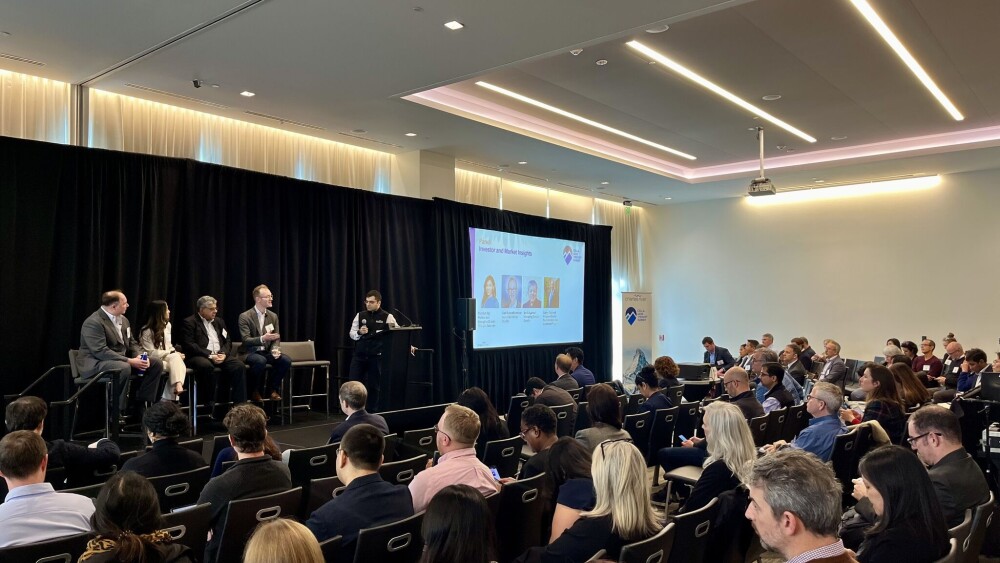After Bristol Myers Squibb picked up Augtyro as part of its $4.1 billion takeover of Turning Point Therapeutics last year, the ROS1-positive non-small cell lung cancer drug reached the regulatory finish line on Wednesday.
Pictured: BMS office in California/iStock, hapabapa
The FDA has approved Bristol Myers Squibb’s tyrosine kinase inhibitor Augtyro (repotrectinib) to treat patients with locally advanced or metastatic ROS1-positive non-small cell lung cancer, augmenting the company’s arsenal of cancer and NSCLC treatments.
According to BMS’s Wednesday announcement, the drug is meant to “minimize interaction” that can lead to certain forms of treatment resistance in ROS1-positive NSCLC patients. The FDA approved the drug based on the TRIDENT-1 study evaluating Augtyro in TKI-naïve and TKI-penetrated patients.
Results showed that for TKI-naïve individuals, the objective response rate (ORR) was 79%, with a median duration of response of 34.1 months. For patients that were TKI-penetrated and had no chemotherapy, the ORR was 38%, with a median duration of response of 14.8 months.
“New treatment options continue to be needed for patients with ROS1 fusion-positive NSCLC that support important clinical goals, including achieving durable therapeutic responses,” Jessica J. Lin, the primary investigator in the TRIDENT-1 trial, said in a statement. “Based on the data we have seen in the TRIDENT-1 trial, repotrectinib has the potential to become a new standard of care option for patients with locally advanced or metastatic ROS1 fusion-positive lung cancer.”
BMS announced that the drug will be available to U.S. patients by mid-December 2023.
Augtyro was picked up by BMS last year in its $4.1 billion deal to acquire the San Diego-based biotech Turning Point Therapeutics. Before BMS acquired Turning Point, the biotech was developing targeted cancer therapies using its “macrocycle program.” Turning Point initially developed candidates in pediatric solid tumors, KRAS-targeting combos and NSCLC. The FDA also gave its repotrectinib a third breakthrough designation in May 2022.
“While progress has been made in the treatment of NSCLC over the past decade, there is still a need to address this particularly difficult-to-treat form of the disease with innovative science and a targeted approach,” Samit Hirawat, executive vice president and CMO for Global Drug Development at BMS, said in a statement. “As the only approved next-generation TKI for ROS1-positive NSCLC patients, Augtyro builds on our legacy of delivering transformational therapies for patients with thoracic cancers.”
With the approval of Augtyro, BMS is adding to its offerings of NSCLC treatments. Opdivo was approved in NSCLC last year by the FDA and displayed a “sustained clinical benefit” in patients who had three cycles of the drug in March 2023. Opdivo is also a significant revenue maker for BMS, pulling in over $2.2 billion worldwide in the third quarter of 2023.
Tyler Patchen is a staff writer at BioSpace. You can reach him at tyler.patchen@biospace.com. Follow him on LinkedIn.






